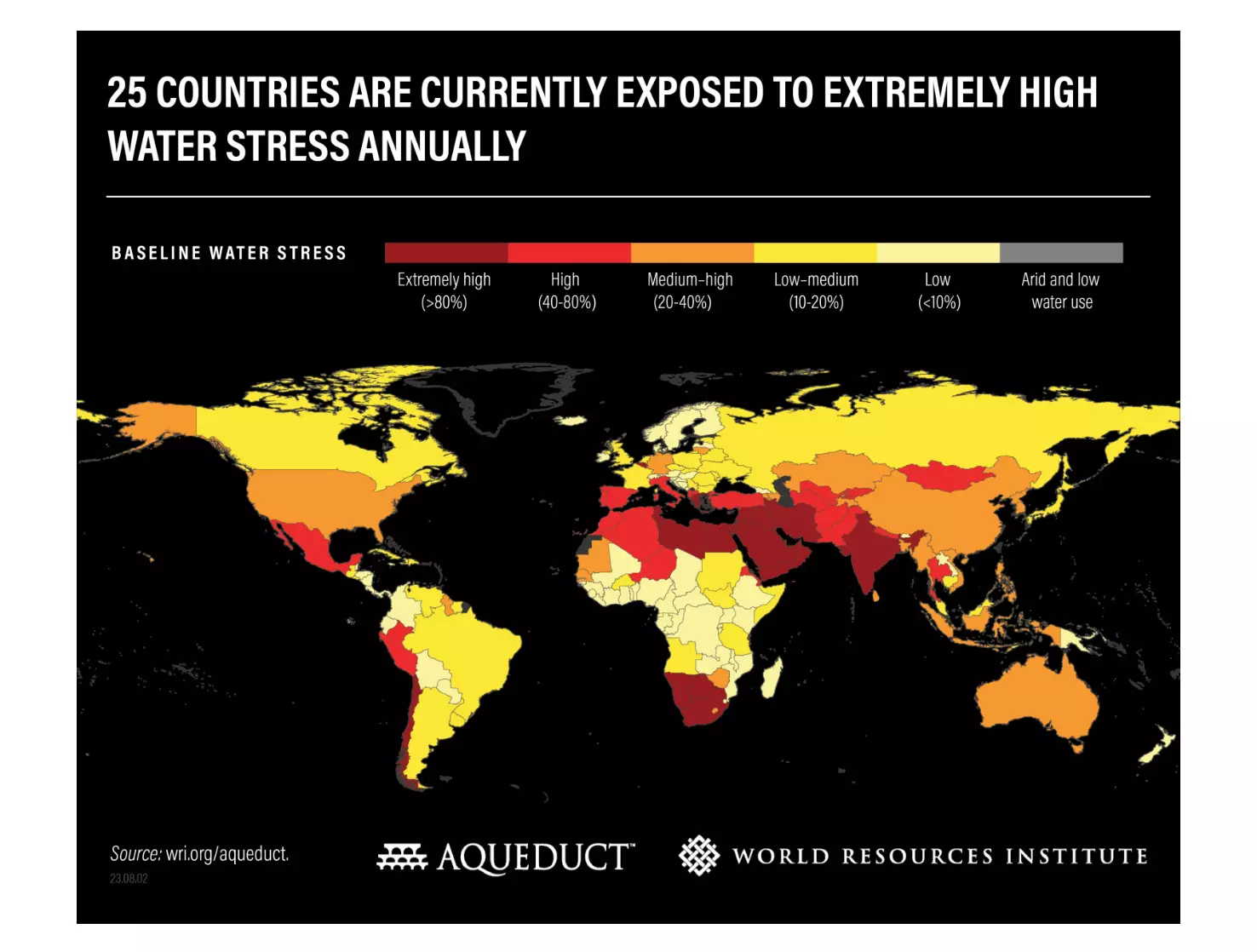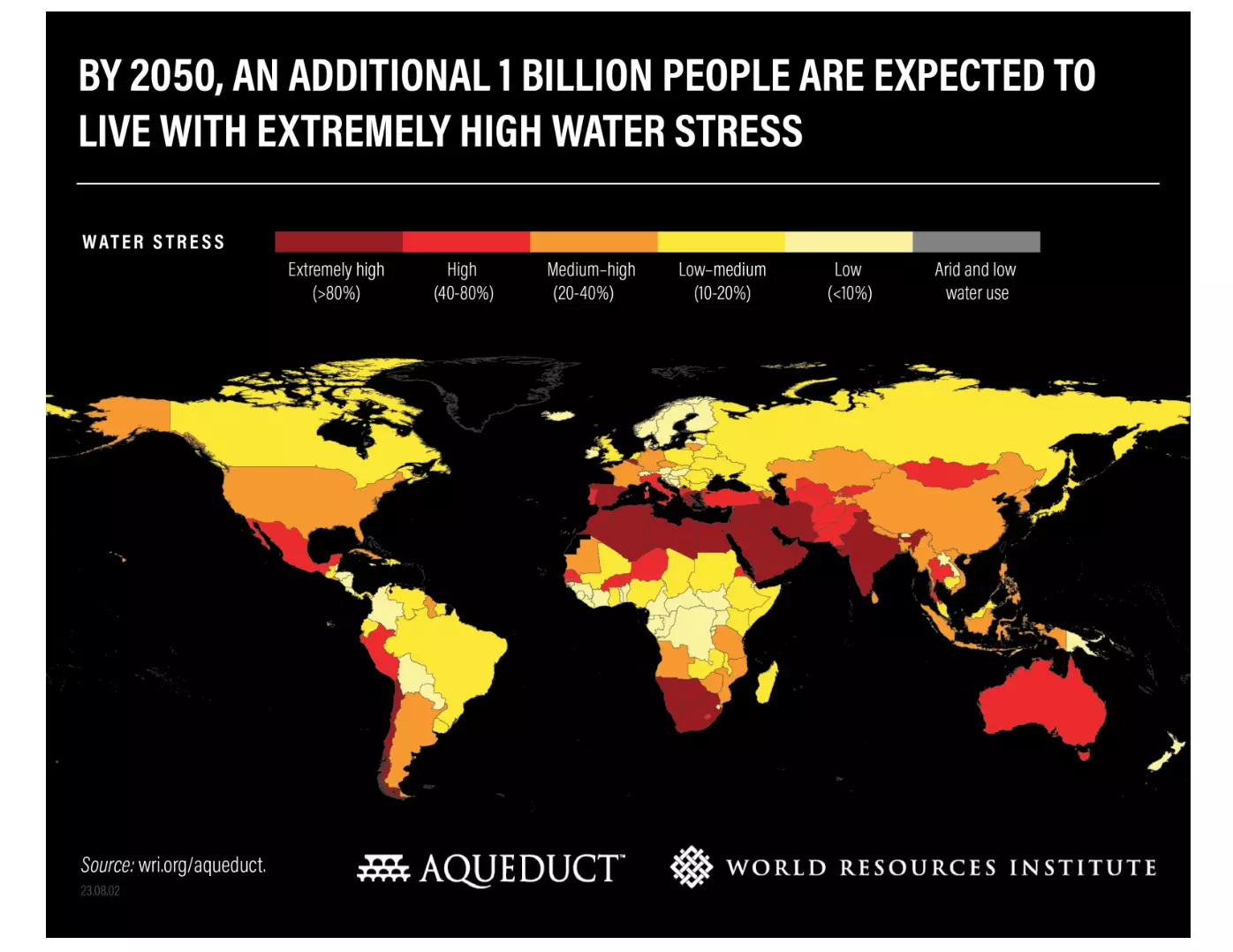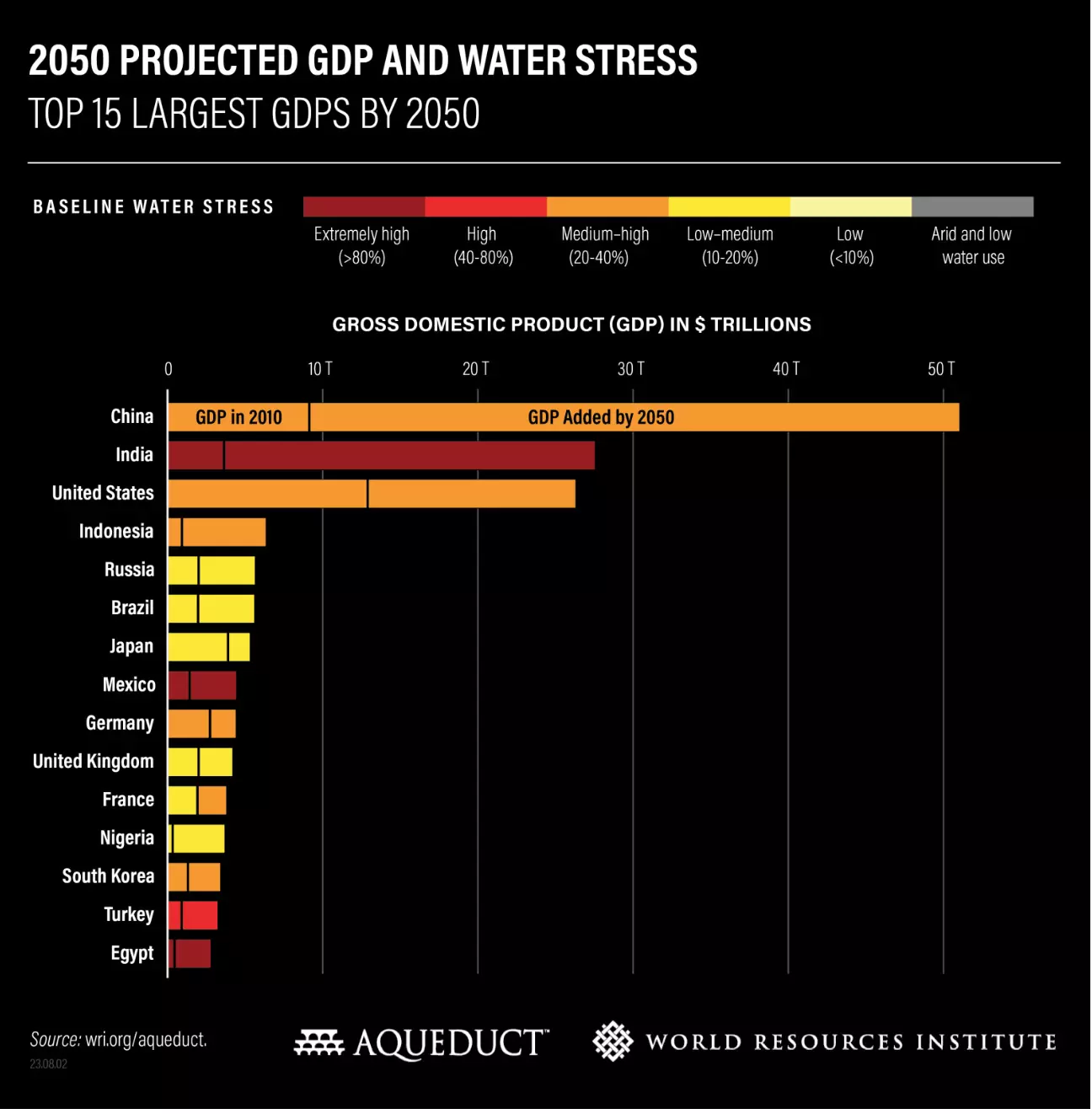As per a dataset released by a global research non-profit organisation, by 2050, five billion people around the world are estimated to be living under highly water-stressed conditions for at least one month of the year.
Washington-based nonprofit World Resources Institute (WRI) mentioned that the worsening of the water stress will still transpire even if the world limits global temperature rise to 1.3 degrees Celsius to 2.4 degrees Celsius by 2100 which is widely accepted to be an optimistic scenario.
The dataset titled Aqueduct Water Risk Atlas — a part of WRI’s presented data which showed that 25 countries are currently exposed to ‘extremely high’ levels of baseline water stress. It means that the highlighted countries withdraw more than 80 per cent of their available supply on average every year for irrigation, livestock, industrial and domestic needs.
“Even a short-term drought puts these places in danger of running out of water and sometimes prompts govnments to shut off the taps. We’ve already seen this scenario play out in many places around the world, such as England, India, Iran, Mexico, and South Africa,” WRI noted.


The five most water-stressed countries are Bahrain, Cyprus, Kuwait, Lebanon, Oman and Qatar — while 83 per cent of the population in the Middle East and North Africa and 74 per cent in South Asia remain exposed to extremely high water-stressed conditions.
WRI warned that a failure in implementing better water management policies can expose 31 per cent of global Gross Domestic Product (70 trillion dollars) to high water stress by 2050, up from 24 per cent (15 trillion dollars) in 2010, including 7 per cent to 12 per cent projected GDP losses in India, China and Central Asia.
The way forward
The WRI research shows that at the cost of about 1 per cent of the world GDP [Gross Domestic Product], the global water challenges can be solved at 29 cents per person, per day from 2015 to 2030.
“What’s missing is the political will and financial backing to make these cost-effective solutions a reality,” it noted.

Suggesting more ways forward, the WRI advocated for water governance, incentivising water efficiency in agriculture, adopting integrated water resource management, and enhancing water infrastructure through nature-based solutions and green infrastructure.
Additionally, it proposed protecting and restoring wetlands, mangroves and forests, alongside the adoption of water-efficient irrigation methods and crops by farmers.
It urged the policymakers in water-stressed countries to prioritise water-prudent energy sources like solar and wind to avoid power shutdowns caused by water shortages


















